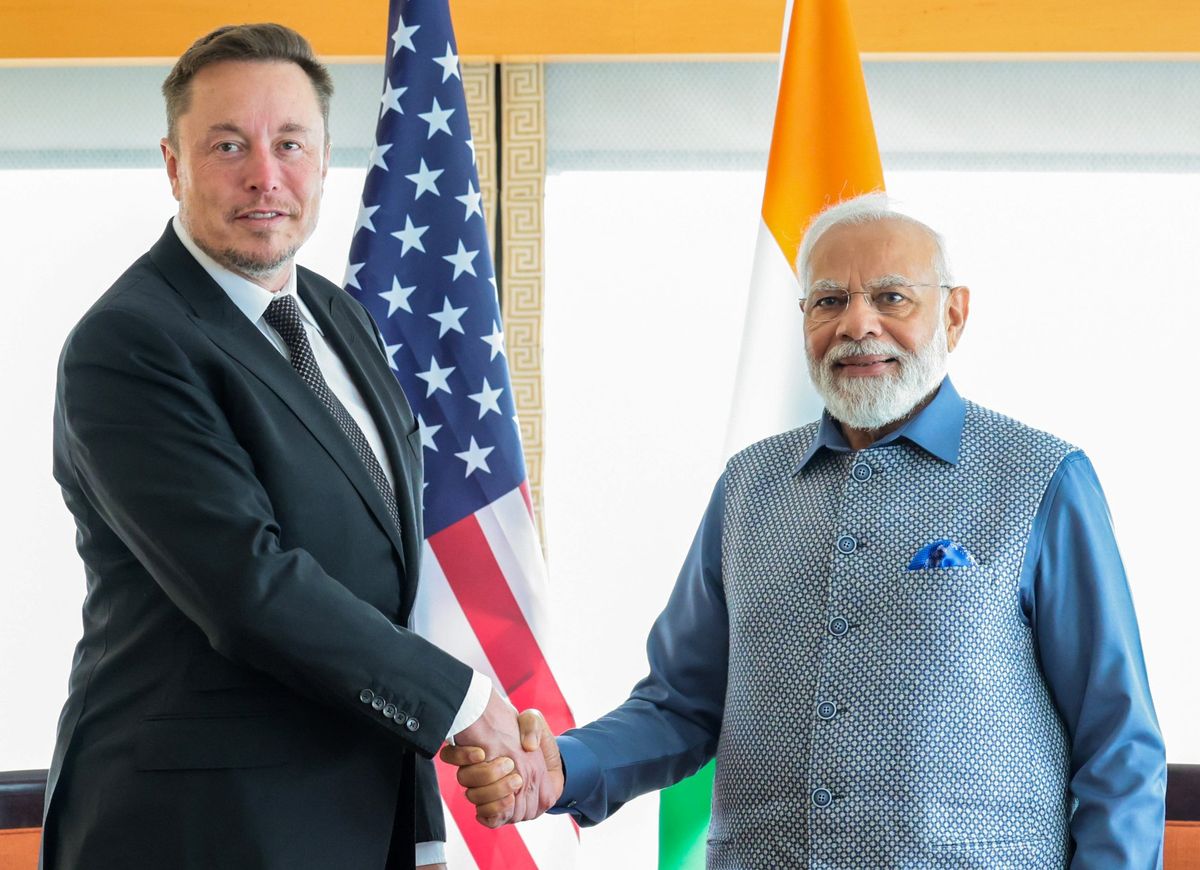After Narendra Modi met Elon Musk on Tuesday, the Indian PM immediately took to Twitter to update his 88+ million followers about his friendly chat with the world's richest man. Musk, of course, is the owner of the social media platform, whose most popular politician is ... Modi.
The thing is, Musk not only controls Twitter, which has often tussled with India over censorship. He also calls the shots at Tesla, a big name in the electric vehicle business, and at Starlink, the satellite internet provider which has kept Ukraine online since the Russian invasion.
Visiting world leaders meeting captains of industry is nothing new. But Musk has unique geopolitical sway in today's "technopolar world" because his companies operate in both the "real" economy (i.e. they make physical stuff people want to buy) and the digital space, where public discourse takes place nowadays.
That makes Musk arguably more influential than most world leaders right now and any business leader in recent memory. As GZERO writer Alex Kliment puts it, he's William Randolph Hearst meets Henry Ford, all in one. No wonder he also recently met Xi Jinping and often talks to Vladimir Putin.
Whatever you think of Musk, his geopolitical clout is undeniable in a future "digital order" in which the digital space itself becomes the main arena for great-power competition and tech companies set the rules instead of governments. But his chumminess with three authoritarian leaders is no harbinger of democracy for the technopolar world.






